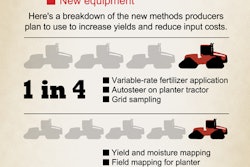A new research article published last month in the academic journal Biofuels concluded that the Renewable Fuel Standard (RFS) is producing significant positive economic effects in the United States. According to the paper, authored by researchers at the Department of Energy’s Oak Ridge National Laboratory (ORNL), the RFS is reducing crude oil prices, decreasing crude oil imports, increasing gross domestic product (GDP), and having only minimal impacts on global food markets and land use. In the future, full implementation of the RFS’s advanced biofuel requirements will substantially amplify these economic benefits, the study found.
Commenting on the ORNL findings, Bob Dinneen, President and CEO of the Renewable Fuels Association (RFA) says, “As Congress returns and hearings are scheduled, Big Oil and Big Food will undoubtedly ramp up their multi-million dollar campaign to smear the RFS. Rather than listening to well-heeled oil lobbyists or giving credence to sham ‘studies’ funded by grocery manufacturers, let’s allow independently funded, unbiased, third-party research — like this study from ORNL — to guide the debate.”
Dinneen continues, “The facts from the ORNL study are: the RFS is reducing oil prices, decreasing oil imports and creating jobs and economic benefits without the rumored catastrophic effects on food prices and land use. In fact, as the study shows, the RFS barely affects food and land markets. The bottom line is the RFS is an unrivaled American success story. We can’t let profit-protecting fear mongers in the oil and snack food industries scare Congress into changing a flexible policy that is making important contributions to the American economy and environment every day.” The study’s key conclusions are summarized below.
Increased GDP: Using an improved, dynamic version of a popular global economic model known as “GTAP,” the researchers found, “…the net global economic effects of the RFS2 policy are positive with an increase of 0.8% in U.S. gross domestic product (GDP) in 2022…” (for context, 0.8% of current GDP is $121 billion). The positive impact on GDP stems largely from lower oil prices and reduced imports. According to the authors, “The economic benefits of conventional and advanced biofuels are primarily from their effects in reducing the imports and use of oil.” Logically, about half of the economic benefits derive from the conventional biofuel requirements of the RFS2, with the remaining half coming from advanced biofuels.
Reduced Oil Prices: In modeling the impacts of full implementation of the RFS2 targets by 2022, the researchers found, “[a]s expected, fossil energy prices, particularly oil, declined as biofuels replace increasing portions of liquid fuel use in the USA. The reduction in oil prices accelerated from -3% in 2015 to approximately -7% in 2022.” This leads to slightly reduced GDP in the Middle East and Africa, traditional oil exporting regions.
Minimal Food Price Effects: The results also showed the RFS has only negligible impacts on food prices. According to the study, “increases in food commodity prices under the RFS2 policy were less than 1% throughout the period from 2002 to 2030.” Prices for livestock, poultry and dairy products were shown to remain stable, or even decrease in some years, under the RFS2. Prices for coarse grains and oilseeds were shown to increase by less than 1% as a result of the RFS2.
Negligible Land Use Impact: The researchers also examined the agricultural land use impacts of the RFS2, finding that the policy actually results in “…a slight [net] reduction in global land use for agriculture.” The modeling showed that any marginal increases in agricultural land use resulting from the RFS2 would be largely constrained to the United States and offset by decreases in land use in other regions. This result stands in stark contrast to previous modeling results suggesting the RFS2 would induce significant land use expansion outside of the United States. The study shows U.S. agricultural land use would be just 0.4% higher (less than 2 million hectares) in 2015 than would be the case without the RFS2 in place. However, slightly expanded land use in the U.S. is more than offset by reduced agricultural land use in other regions, particularly the Middle East and Africa, by 2022.
Benefits Shrink with Increased Biofuel Imports: The study examines a case where the long-term RFS advanced biofuel requirements are met with imported sugarcane ethanol rather than domestically produced renewable fuels. Logically, this case results in less economic benefit for American consumers. The authors write, “…a greater reliance on [biofuel] imports could reduce the benefits of advanced biofuels significantly…” because “…imported biofuels displace domestic production and, as with oil, increase payments for fuels to the [rest of the world]…”
The study is available for purchase here.



















